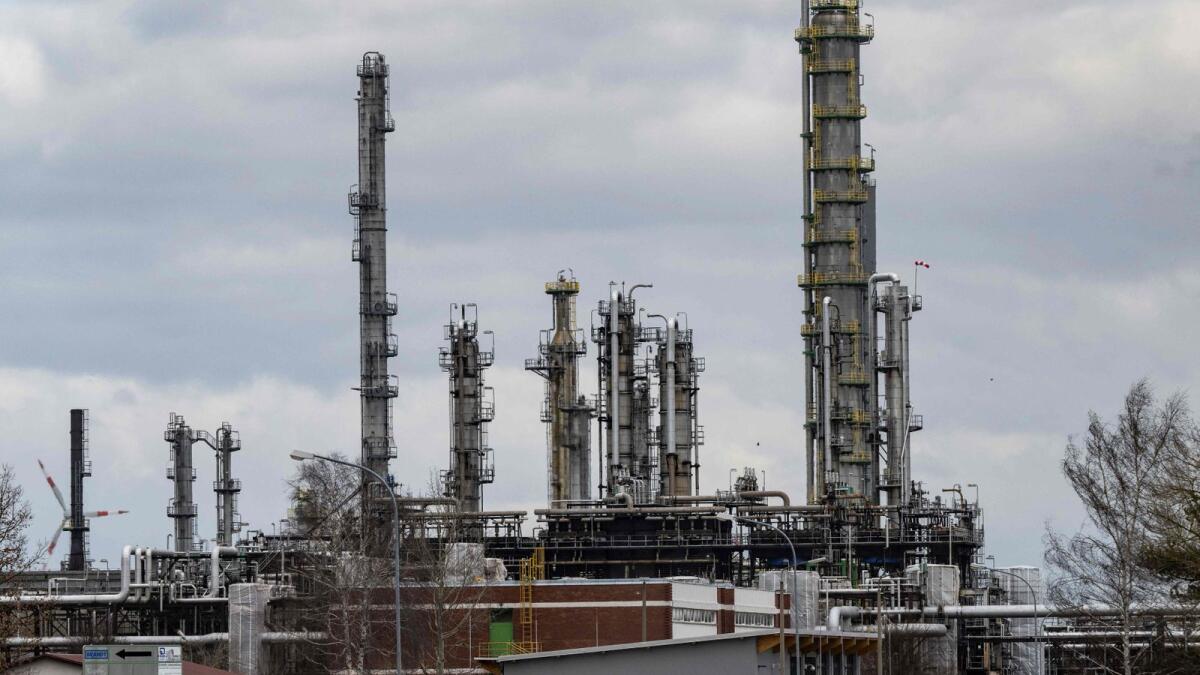Germany is set to sign two contracts to increase its oil imports from Kazakhstan for the Schwedt oil refinery, located just outside of Berlin. German Chancellor Olaf Scholz will be visiting Central Asia to secure these contracts as part of Berlin’s search for new markets and sources of energy and minerals following the Ukraine war. The agreements will secure a monthly supply of 100,000 metric tonnes of crude oil until the end of 2025, along with a second contract for up to 50,000 tons per month. The PCK Schwedt refinery has been purchasing these additional quantities for the past three months, but they will now be contractually fixed.
Kazakh oil imports have become crucial for the Schwedt refinery after a significant decrease in Russian oil supplies due to European Union sanctions on Moscow following the Ukraine invasion in February 2022. Representatives of Rosneft Deutschland, the German subsidiary of Russia’s Rosneft, will be signing the agreement in the Kazakh capital of Astana. In 2023, Kazakhstan exported 8.5 million tons of oil to Germany, accounting for 11.7% of Germany’s total oil imports. This is a significant increase from around 6.5 million tons before the Ukraine war, making Kazakhstan Germany’s third-largest oil supplier after Norway and the United States.
These contracts mark an important step for Germany in diversifying its energy sources and reducing its dependence on Russian oil. The agreements with Kazakhstan will provide a more stable and secure supply of oil for the Schwedt refinery amidst ongoing geopolitical tensions in the region. The move also aligns with Germany’s efforts to support sustainable and reliable energy sources that are not tied to volatile political situations. By securing these contracts, Germany is taking proactive steps to ensure the continued operation and success of its oil refinery while also broadening its international partnerships in the energy sector.
As Germany continues to navigate the aftermath of the Ukraine war and seek alternative sources of oil, its collaboration with Kazakhstan represents a strategic move towards energy security and diversification. By expanding its imports from Kazakhstan, Germany is tapping into a reliable and growing market for oil while reducing its reliance on politically unstable suppliers. The agreements with Kazakhstan are a testament to Germany’s commitment to fostering economic partnerships that are based on mutual benefit and long-term sustainability. By strengthening ties with Central Asian countries like Kazakhstan and Uzbekistan, Germany is creating new avenues for economic cooperation and energy security in a rapidly changing global landscape.
The partnership between Germany and Kazakhstan in the oil sector highlights the potential for increased collaboration between European countries and Central Asian nations. By fostering stronger economic ties, both Germany and Kazakhstan stand to benefit from enhanced trade relations and increased investment opportunities. This cooperation also contributes to the broader goals of promoting regional stability and economic development in Central Asia. As Germany looks to diversify its energy supplies and reduce its dependence on Russian oil, partnerships with countries like Kazakhstan play a crucial role in ensuring a stable and sustainable energy future for the region.
Overall, the contracts between Germany and Kazakhstan for increased oil imports mark a significant milestone in the ongoing efforts to secure energy resources and strengthen economic ties between the two nations. By expanding its collaboration with Kazakhstan, Germany is not only ensuring a stable and reliable source of oil for its refineries but also contributing to the broader goals of energy security and diversification. As the global energy landscape continues to evolve, partnerships like these will be essential for ensuring a sustainable and resilient future for both nations.









